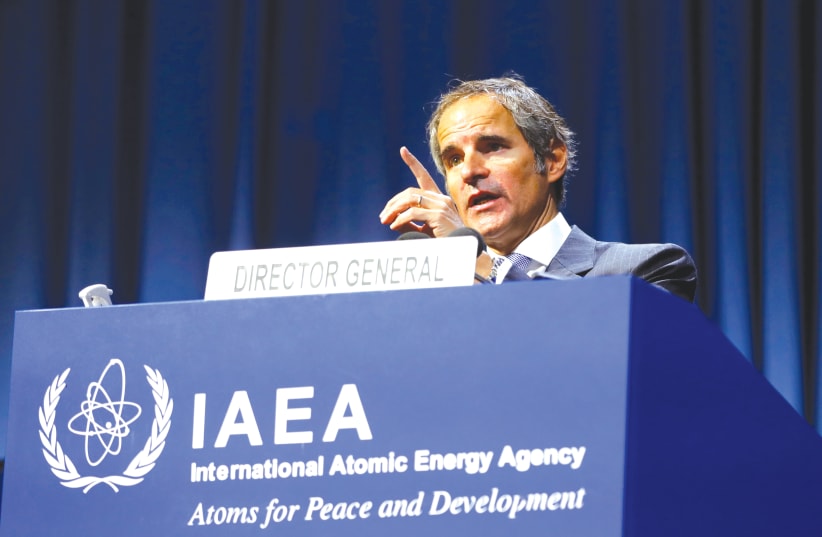“I cannot imagine that they are going simply to say, ‘We are back to square one’ because square one is no longer there,” Rafael Grossi, who directs the International Atomic Energy Agency, said in an interview Reuters posted on Thursday. “It is clear that there will have to be a protocol or an agreement or an understanding or some ancillary document which will stipulate clearly what we do.”
Grossi added that a new agreement could address Iran’s rogue activity. On Friday the Associated Press reported that the country has started new construction at an underground nuclear facility.
“There is more (nuclear) material, … there is more activity, there are more centrifuges, and more are being announced,” Grossi said. “So what happens with all this? This is the question for them at the political level to decide.”
Biden has stated that he would seek to reenter the current deal then negotiate a new one.
“We’re going to engage in negotiations and follow-on agreements to tighten and lengthen Iran’s nuclear constraints, as well as address the missile program,” he told Thomas Friedman earlier this month.
The deal, which was negotiated by the US and other powers such as Russia and China but abandoned by President Trump in 2018, traded sanctions relief for Iran’s agreement to roll back its nuclear program. Western intelligence agencies say that prior to the deal Iran was aiming for a weapons program. Iran insists that its program was always for peaceful purposes.
Iran started violating some terms of the deal, particularly in areas of enrichment, after Trump reimposed and escalated sanctions, pursuing a strategy of “maximum pressure” to get Iran to completely end its nuclear development, and to buckle in other areas, including its missile program and its adventurism in the region.
Iran is now enriching and stockpiling uranium at levels well beyond the deal’s parameters, but nowhere near the levels it was at before the 2015 deal. The US’ partners in the 2015 deal are still abiding by its terms.
